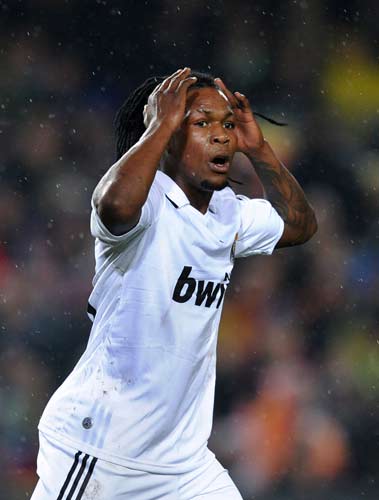Scouts hoping to find the next Figo or Blanc

It was the competition in which Laurent Blanc (1988), Luis Figo (1994), Fabio Cannavaro (1996), Andrea Pirlo (2000) and Petr Cech (2002) made their name as the Player of the Tournament. Last time out, in the Netherlands two years ago, the exciting if erratic Dutch attacker Royston Drenthe won the award, and earned himself a transfer from Feyenoord to Real Madrid. Over the next fortnight, scouts from all over Europe – 50 clubs have already applied for tickets – will be descending on Sweden hoping to discover, or sign, the next big thing.
The tournament, which began in 1978, has a much higher profile these days since it was changed, in 1992, from being simply a two-leg knockout competition. A further improvement was to move to odd-numbered years so as not to clash with either the senior European Championship or the World Cup.
That meant playing in both 2006, when the Netherlands won in Portugal, and 2007 when they retained the trophy as hosts, beating Serbia 4-1 in the final.
Yet such is the swift turnover of players, and the intense competition for only eight places at the finals, that this time the Dutch have failed to qualify. So have France, whose new, younger team outplayed England in winning 2-0 at Nottingham Forest recently, having been knocked out in the play-offs by Germany.
England, Germany, Italy and Spain represent what might be regarded as the old guard, with Belarus and Serbia from the new Europe, Finland the tournament virgins and Sweden hoping to succeed in a competition that does not favour the hosts; only the Netherlands have won at home.
As with any such tournament – and one that in this case does not attract many travelling supporters – a good run for the home side adds to the flavour and interest.
Sweden expect to draw good crowds to their games in Malmo and Helsingborg, and other matches are being played at sensibly compact stadia; two of England's are in Halmstad, the coastal town known as the home of Freddie Ljungberg and the re-formed Eighties pop duo Roxette, where the stadium holds only 7,500. The Swedes, whose joint manager Tommy Soderberg was in charge of the national team at three major finals from 2000 to 2004, have shown up well in a series of friendly matches, including an away draw with Spain. Italy and Spain cruised through their group, but all the play-offs were tight – England only beat Wales 5-4 on aggregate.
England coaches with younger age groups tended in the past to talk about the development of players being as important as winning, but the country's record in Uefa tournaments is so poor – only one trophy in more than 50 attempts, at Under-19 level in 1993 – that Stuart Pearce has been emphasising the need to improve it. "There are 60 million people back home who want us to win something," he said yesterday.
Talent spotting: Three to watch
*Mario Balotelli (Internazionale and Italy)
Born in Palermo to Ghanaian parents, Balotelli was adopted at an early age and could not receive Italian citizenship until his 18th birthday last August. He made his debut for Inter as a 17-year-old striker but has fallen foul of Jose Mourinho for lack of effort. One to watch if he is trying.
*Bojan Krkic (Barcelona and Spain)
The youngest player to appear for Barcelona in the Champions League and their youngest league scorer, Bojan almost made the Euro 2008-winning team, and made his senior debut in September. Scored the goal that beat England in the final of the European Under-17 Championship two years ago.
*Zoran Tosic (Manchester United and Serbia)
Already a star in Serbia, for whom he has played 13 times at senior level, Tosic had played for barely a year at Partizan Belgrade before United decided to sign him in the transfer window last January. Short but tricky, he made three appearances on the left wing for them. Just don't call him the new Ronaldo.
The road to Malmo: Tournament format
*Two groups of four:
Group A: Belarus, Italy, Serbia, Sweden, based in Helsingborg and Malmo.
Group B: England, Finland, Germany and Spain, based in Halmstad and Gothenburg.
*Winners and runners-up go through to semi-finals on 26 June in Helsingborg and Gothenburg.
*Final in Malmo on 29 June.
*Previous winners: Italy 5, England 2, Netherlands 2, Spain 2, USSR 2, Czech Republic 1, France 1, Yugoslavia 1.
Subscribe to Independent Premium to bookmark this article
Want to bookmark your favourite articles and stories to read or reference later? Start your Independent Premium subscription today.

Join our commenting forum
Join thought-provoking conversations, follow other Independent readers and see their replies